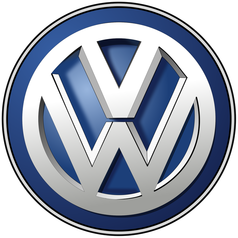 Emily Sartin Staff Writer Volkswagen (VW) has admitted to putting “defeat devices” in eleven million diesel engines in the Golf, Passat, Beetle, and Jetta during model years 2009 to 2015. These devices allow the car to pass emissions tests while actually releasing forty times more than the legal amount of nitrogen-oxide. The impact of this crisis, one of the worst in history, affects more than corporate VW; it affects car dealers, VW suppliers, consumers that own the altered models, and the shareholders in VW stock. The full details of how the device operates is unclear. The engines of the cars have computer software that senses when the car is under a test scenario by tracking speed, engine operation, air pressure, and the position of the steering wheel. When the software detects the car is being tested, the device puts the vehicle in a safety mode, causing the engine to run below normal power and performance. The cars, under normal operation, release forty times more than the amount regulated by the Environmental Protection Agency (EPA) of pollution-causing nitrogen oxide. The device likely came about in the middle of last decade when it was clear that VW’s old diesel design did not meet tougher emission standards, leading engineers to create the “defeat device” to ensure improved mileage and performance. The effects of the scandal are ever growing and extending to more people. VW could face fines as high as $37,500 per car from the EPA, possibly totaling $18 billion in fines in the U.S. alone; the price of fines could increase to a much higher number as other regulators around the world get involved. Additionally, VW has set aside $8 billion for recalls, and the number of lawsuits and criminal charges are growing every day. Caught right in the middle of the impropriety are VW car dealers. The cars they sell are corrupted and consumers are enraged, even though the dealers only sell the cars, they do not manufacture them. The EPA is refusing to certify the new line of 2016 VW diesel cars, forcing the company to issue a stop-sell order to all dealers. The stop-sell order prevents dealers from selling new diesel cars and certified used ones. Once a fix is issued, dealers will have to issue the recall and perform the work to get the cars back on the road legally.
Not only are VW dealers being impacted but independent car dealers are as well. Independent national used car chain, CarMax, reports that in its inventory of fifty thousand used cars, there are several hundred “defeat device” vehicles; these cannot be sold until VW finds a fix for the cars. With VW sales being drastically affected, the consequent sales for their suppliers could be affected as well. A majority of automakers outsource around eighty percent of a vehicle’s sticker price. Also, many people’s jobs are at risk due to unethical employees and poor corporate operations. Customers and shareholders stand to lose a significant amount of money. Owners of the vehicles containing modified diesel engines could lose up to $5,000 in resale value per vehicle; that is a total of $55 billion for the eleven million vehicles altered. Shareholders of the VW stock watched the stock value drop thirty percent in the first few days after the scandal broke. With a breach of trust this wrongdoing has caused between VW and its customers, VW insists they will do whatever it takes to solve the crisis, a spare-no-expense approach, which is necessary for the company to rebuild its reputation. VW has proudly taken a leadership role in green automotive technology; it may be a long while before consumers take this seriously again. It is unknown how long it will take VW engineers to design a solution to deactivate the “defeat device.” One possible tactic is for the engineers to rewrite the basic engine software, but this could cause a loss of performance and reduced fuel economy. Another solution is to install a new pollution control hardware, but this would be costly, and professionals are uncertain if this is even practical or possible. Others speculate that VW will compensate owners for reduced performance and mileage through a buyback system. While engineers work on a solution to the “defeat device,” VW is under investigation in the U.S., Germany, UK, Switzerland, Italy, France, South Korea, Canada, Norway, and India. Comments are closed.
|
Archives
March 2017
Categories
All
|

